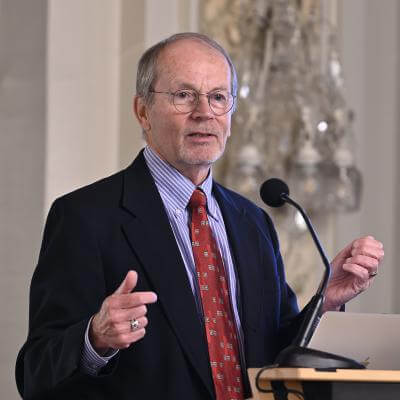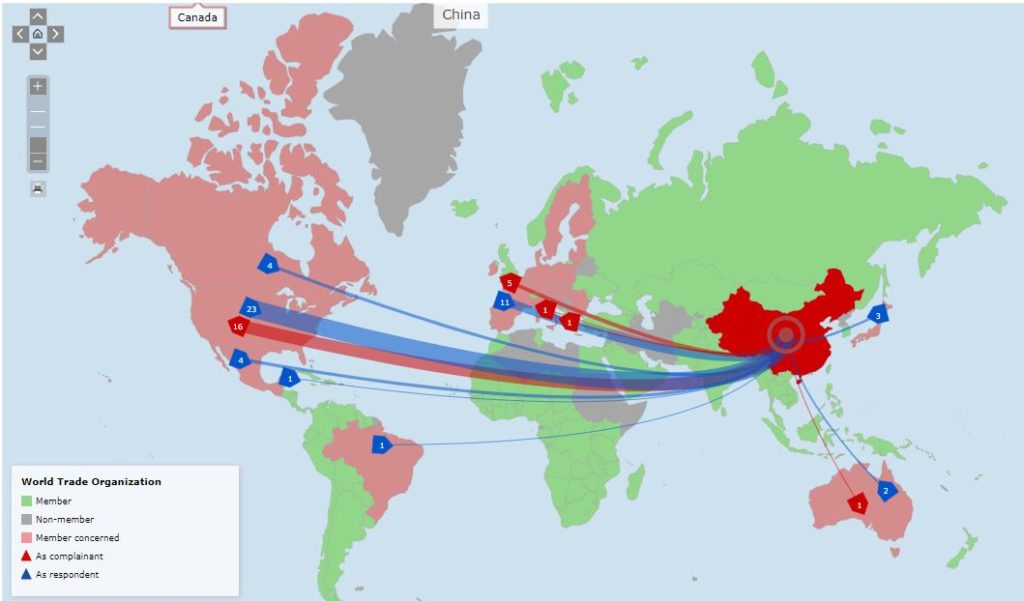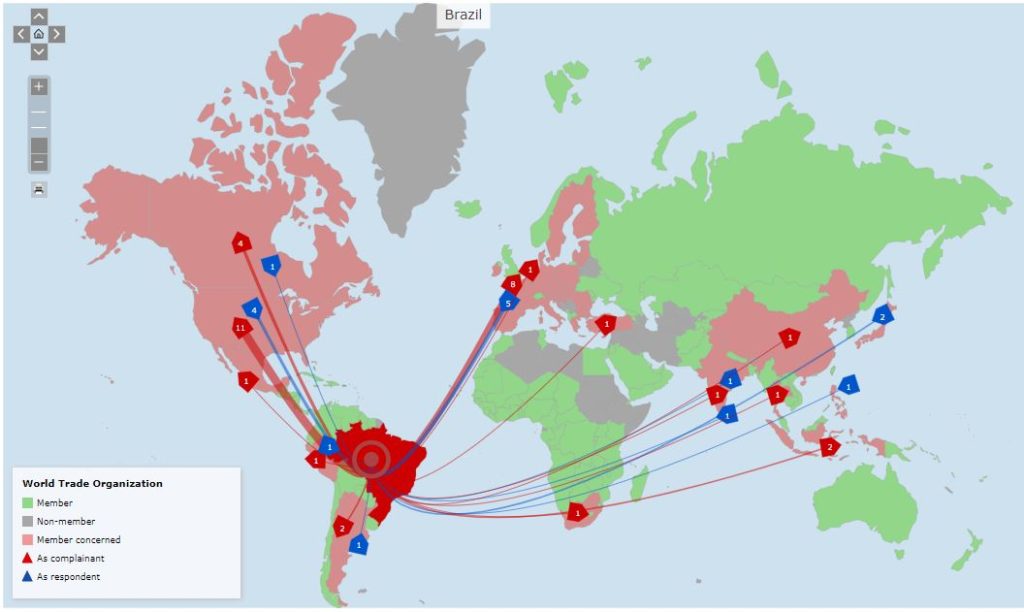Globalisation: The Danger of Safe Spaces
Last May, the secretary-general of NATO, Jens Stoltenberg, declared to the World Economic Forum that “freedom is more important than free trade”. These words, referring to the ongoing Ukrainian war, are in stark contrast with what Nobel Peace Laureate Norman Angell had identified in 1909 as the futility of war. In his influential book, The Great Illusion, Angell noted that industrial countries had become so economically interdependent that a war among them would harm both victors and defeated. With hindsight, we know that Angell failed to predict the World Wars, but the appeal of his logic lives on.
Economic interdependence has long been seen as a force for conflict prevention
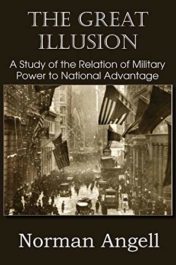
In 1945, the Allies set out to create a new international order to promote economic growth and peace. That these two aims were seen as connected was a tribute to Angell’s ideas and justifies the multilateral architecture vested in the three international organisations inaugurated then: the United Nations, the International Monetary Fund (IMF) and the World Bank.
Multilateralism has been a key foundation of the world economic order since 1945 and all the more since the fall of the Berlin Wall, when the former Soviet-bloc nations rejoined the world economy. One hundred years after Angell’s book, US political commentator Thomas Friedman restated Angell′s theory of how economic interdependence (now called globalisation) prevented conflict. Friedman observed that no two countries where McDonald’s was present had fought a war with each other. He later revised this “golden arches theory”, stating that no two countries part of a major global supply chain ever fought. The invasion of Ukraine has put to rest Friedman’s two metaphors of conflict prevention. But the trillion-dollar question is whether the return of geopolitical rivalry will also terminate the international liberal order.
National economies are becoming increasingly vulnerable to external shocks
Over the last two years, the pandemic and the Ukraine war exposed the fragility of international interdependence to shocks. The logic of economic efficiency behind the intricate cross-border supply chains now appears threatened by considerations of strategic or social resilience. Nations are no longer happy with relying on foreign countries, especially rivals, for key economic or strategic inputs (vaccines, semiconductors, energy).Reshoring or friendshoring are now on the rise Reshoring or friendshoring are now on the rise, often with government support, as in the case of the US CHIPS Act, the banning of Chinese tech companies in the West as in India, and China’s “Made in China 2025” goal. Moreover, deeper political and social forces are pushing against “hyperglobalisation”, perceived as contributing to relative national decline, massive inequality and environmental collapse.
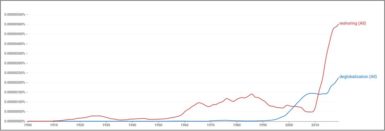 Google Ngrams data showing the frequency of ‘reshoring’ and ‘deglobalization’ in the Google Books text corpus from 1900-2019 (case insensitive). See online version.
Google Ngrams data showing the frequency of ‘reshoring’ and ‘deglobalization’ in the Google Books text corpus from 1900-2019 (case insensitive). See online version.Judging by Google’s Ngram tool, the interest in the topic of deglobalisation (and its correlates: protectionism, nationalism, reshoring, etc.) has been growing since the 2010s, especially after 2016. While the timing is unsurprising, it also reminds us that globalisation has received its last rites far too often.
Optimists note that by most measures, globalisation has been steady if not increasing, despite the COVID shock. More importantly, globalisation is changing under what economist Richard Baldwin called the “third unbundling”. Two previous globalisation waves dramatically reduced the costs of moving goods in the 19th century and ideas in the late 20th. Today’s version is reducing the costs of moving people, if not physically, at least virtually. From call centres to telehealth, a fast-rising share of manual work and professional services is performed remotely. COVID’s large-scale teleworking trial only accelerated this trend. Available evidence shows global IP traffic has increased markedly in 2020 and is expected to more than treble from 230 exabytes in 2020 to 780 exabytes by 2026, according to the United Nations Conference on Trade and Development (UNCTAD). More sanguine optimists, such as science-fiction author Neal Stephenson and Mark Zuckerberg, expect virtual reality technologies to complete the unbundling.
And yet, history shows that even the deepest economic ties can break down suddenly.And yet, history shows that even the deepest economic ties can break down suddenly The first wave of globalisation, fostered by new technologies such as the steam engine and the telegraph, collapsed with the Great Depression. A world organised in a complex trade and finance network, connecting a Western European core to a number of peripheries, quickly gave way to a series of regional blocks split by political hegemony or economic dependency. British colonies rallied around imperial trade preference, proclaimed in 1932 at the Ottawa Conference, while other nations dependent on British trade and finance joined the sterling area. Latin American countries similarly joined the dollar area and Southeast Asia integrated more with Japan. This regionalisation trend not only changed the architecture of economic activity but also sapped the possibilities for international political cooperation envisaged with the creation of the League of Nations.
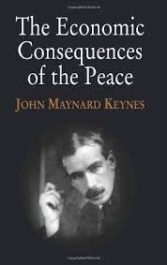
In his book The Economic Consequences of the Peace, John Maynard Keynes reflected on the myopia of the self-contented European who saw the prewar international order as “permanent, except in the direction of further improvement” and for whom “the politics of militarism and imperialism, of racial and cultural rivalries, of monopolies, restrictions, and exclusion … were little more than the amusements of his daily newspaper, and appeared to exercise almost no influence at all on the ordinary course of social and economic life, the internationalization of which was nearly complete in practice”. In our current search for safer economic spaces, are we falling for the same oversight?
VIDEO: A critical analysis of the weaponisation of economics, by Beatrice Weder di Mauro
Research Office, Geneva Graduate Institute.
VIDEO: Why integrated trade networks matter, with Richard Baldwin
VOXeu and CEPR (Geneva Graduate Institute)
PODCAST: Are we moving towards a new economic cold war? with Cédric Dupont
Research Office, Geneva Graduate Institute. Globalchallenges.ch
PODCAST: Economic nationalism in the light of the long-term history of capitalism, with Gopalan Balachandran
Research Office, Geneva Graduate Institute. Globalchallenges.ch
PODCAST: Overview of the WTO challenges in 2022, with Manuel Miranda
Research Office, Geneva Graduate Institute, 2022. Globalchallenges.org
PODCAST: China and the changing global economic landscape, with Sung Min Rho
Research Office, Geneva Graduate Institute. Globalchallenges.ch
PODCAST: The Economic Weapon in Global Governance, with Nicholas Mulder
Geneva Graduate Institute
DEFINITIONS related to sanctions and economic warfare
Economic and financial sanctions are enforcement actions taken by a country or a group of countries against a targeted state, group, or individual that has been found in non-compliance with existing international law, treaty obligations and customary rules. They can take many forms, like restrictions on commercial or financial transactions, asset freezes, travel bans, or the withholding of economic and technical assistance. They pursue a variety of social, commercial and/or political objectives depending on the kind of violations committed by the target group or state. Usually, they are supposed to coerce targets of sanctions into compliant behaviour, but often, they serve to deter third countries from pursuing similar violations of international law commitments. As an enforcement action, sanctions are supposed to refer to a specific violation of existing law, rather than constitute a purely political measure.
An embargo is the partial or complete proscription of commerce with a particular country or a group of countries. It entails the ban of imports or exports of certain items, or whole sectors, or all products from or to a specified country. One of the most famous illustrations is the oil embargo imposed by the Organization of the Petroleum Exporting Countries (OPEC) in 1973 in retaliation to Western support for Israel during the Yom Kippur War. As a barrier to trade, an embargo should not be confused with a military blockade, although enforcement of the embargo could escalate into a military intervention. In contrast to sanctions, which are conceived as enforcement actions, an alliance of states can decide to erect an embargo based on political reasons, for instance, to help allies involved in a conflict by weakening the economy of inimical states.
Sanctions have been used to advance a range of foreign policy goals, including counterterrorism, counternarcotics, nonproliferation, democracy and human rights promotion, conflict resolution, and cybersecurity. Sanctions, while a form of intervention, are generally viewed as a lower-cost, lower-risk course of action between diplomacy and war. Still, the costs of sanctions are harder to measure, and human costs can be very high, especially when a whole economy is sanctioned, as in the case of “comprehensive sanctions” against Iraq in the 1990s, or when the whole financial system of a country is crippled, as in the case of “massified” targeted financial sanctions against Iran in the early 2010s.
As the UN’s principal crisis-management body, the Security Council (UNSC) may respond to global threats by imposing sanctions against states and nonstate groups who are found in non-compliance of international law. Sanctions resolutions must pass the fifteen-member council by a majority vote and without a veto from any of the five permanent members: the United States, China, France, Russia, and the United Kingdom. The most common types of UN sanctions, which are binding for all member states, are asset freezes, travel bans, and arms embargoes. UN sanctions regimes are typically managed by a special committee and a monitoring group. The global police agency INTERPOL assists some sanctions committees, but the UN has no independent means of enforcement and relies on member states, many of which have limited resources and little political incentive to prosecute noncompliance. Still, the private sector, and especially banking institutions, have come to integrate the names of front companies found in the reports of UN monitoring groups that document evasion practices of specific UNSC sanction regimes, which demonstrates the centrality attained by the UNSC in the management of sanctions. Prior to 1990, the UNSC had imposed sanctions against just two states: Southern Rhodesia (1966) and South Africa (1977), but there has been a long history of sanctions by the League of Nations, of which the UN is the successor organisation.
The European Union imposes sanctions, known more commonly in the 28-member bloc as “restrictive measures”, as part of its Common Foreign and Security Policy. Because the EU lacks a joint military force, many European leaders consider sanctions the bloc’s most powerful foreign policy tool, based on the experience attained during the early 2010s in the nuclear negotiation with Iran that lead to the signature of the JCPOA in 2015. Sanctions policies must receive unanimous consent from member states in the Council of the European Union, the body that represents EU leaders. Since its inception in 1992, the EU has levied sanctions more than 30 times (in addition to those mandated by the UN). Analysts say the “massified” targeted sanctions the EU bloc imposed on Iran in 2012 – which it lifted in 2015 as part of the Iran nuclear agreement (the Joint Comprehensive Plan of Action, JCPOA) – marked a turning point for the EU, which had previously sought to limit sanctions to specific individuals or companies.
The United States uses economic and financial sanctions more than any other country. Sanctions policy may originate in either the executive or legislative branch. Presidents typically launch the process by issuing an executive order (EO) that declares a national emergency in response to an “unusual and extraordinary” foreign threat, for example, “the proliferation of nuclear, biological, and chemical weapons” (EO 12938) or “the actions and policies of the Government of the Russian Federation with respect to Ukraine” (EO 13661). Many US sanctions regimes are administered by the Office of Foreign Assets Control (OFAC), located in the Department of the Treasury: OFAC is often considered an all-powerful organisation, as it is in charge of sanctions designations, sanctions exemptions and humanitarian licenses, and examination of delisting requests.
Economic nationalism is an ideology that advocates bolstering and protecting national economies in an effort to countenance or counteract the effects of trade liberalisation and globalisation. It aims to maximise national self-reliance by reverting to elements of protectionism and mercantilism. Economic nationalism privileges state control and interventionism over market mechanisms, profit maximisation and growth. It typically restricts flows of labour, capital, goods and services through protectionist measures such as tariffs, investment controls or export restrictions.
Reshoring is the opposite of offshoring. It refers to companies repatriating “back home” parts or all of their supply chains components, including back-office, manufacturing, or R&D processes. Nearshoring and friendshoring obey a logic similar to reshoring, but instead of production and manufacturing being repatriated back to the “home country”, they are relocated to neighbouring (nearshoring) or allied countries (friendshoring).
Research Office, Geneva Graduated Institute. Questions largely inspired by the Council on Foreign Relations, www.cfr.org.







